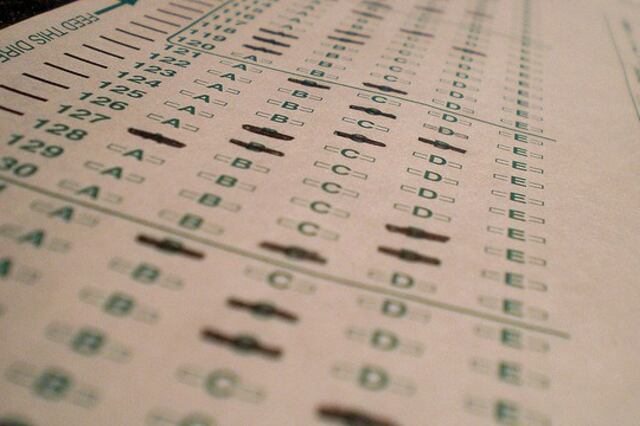Michigan’s top education official, seeking to cancel standardized state exams this year, urged the federal government to waive requirements that students be tested annually.
State Superintendent Michael Rice cited the pandemic when requesting the waiver in a letter Monday to the U.S. Department of Education.
“The typical environment for conducting state summative assessments cannot be met this spring, and the current environment under a global pandemic undermines the value and trustworthiness of any state summative assessment results that might be gathered,” Rice wrote.
Rice said canceling the state exams would allow the Michigan Department of Education to prioritize a new legislative requirement that schools conduct “benchmark” assessments in the fall and spring to gauge student improvement during the school year.
During the spring, the state administers several exams including the Michigan Student Test of Educational Progress (M-STEP) and the SAT. Last year, the state sought and won a federal waiver that allowed the exams to be canceled for the 2019-20 school year.
Rice said in his letter that it would be impossible to replicate ideal testing environments when some students are learning online, some are learning in person, and others are doing both.
“Without uniform testing conditions, adequate participation, and appropriate test security measures, summative assessment results will misrepresent achievement within Michigan,” Rice wrote.
It would also undermine confidence in Michigan’s assessment and accountability system, Rice said.
It’s unclear when federal officials will respond. Similar requests have been sent from other states, including New York, which also sent a waiver request Monday.
Rice’s letter brought mixed reactions from leading education groups in the Michigan.
Amber Arellano, executive director of the Education Trust-Midwest, called on Rice to rescind the request, saying the tests are necessary for the state to understand how the pandemic has affected students in order to better provide resources.
The state’s proposal “would greatly jeopardize efforts of parents and educators to help students catch up now and in the years to follow,” Arellano said. “During the COVID-19 pandemic, national research suggests millions of students have been falling behind during the disruptions to in-person school since last spring. Now is the time to face this educational challenge with great transparency and honesty.”
But the president of the Michigan Education Association, the state’s largest union for teachers and other school employees, applauded the move.
“Amidst this pandemic, we simply cannot waste valuable learning time on high-stakes standardized testing,” Paula Herbart said in a statement. The local benchmark tests, she said, are helping to guide efforts “to address student learning delays caused by the public health crisis.
“Mandated standardized testing like the M-STEP does not provide educators the data needed to meet individual student learning needs in real time, which is what we need to be laser focused on right now.”







